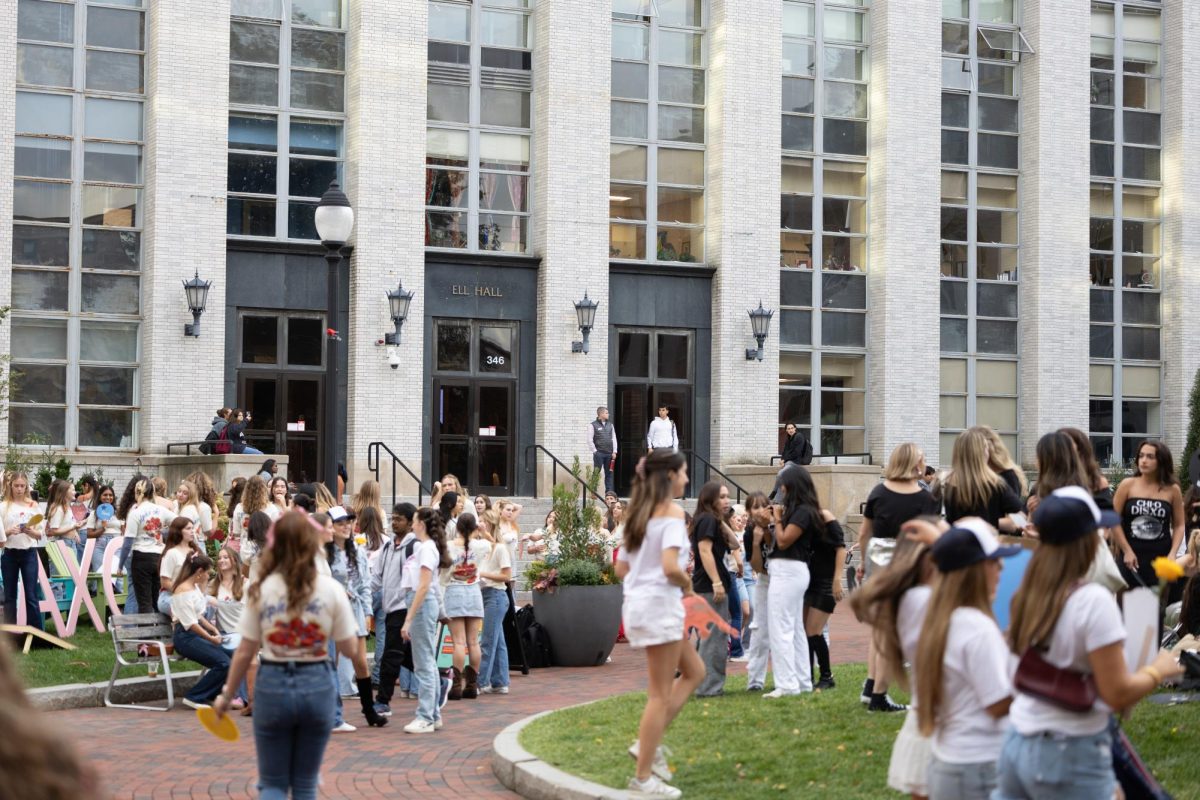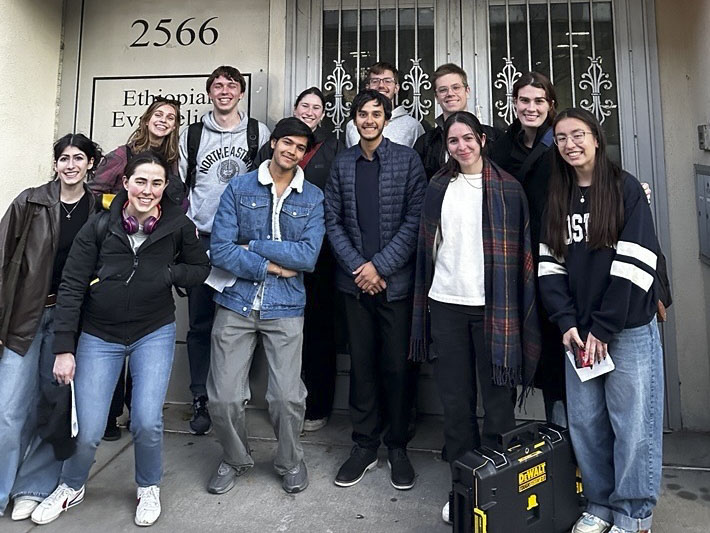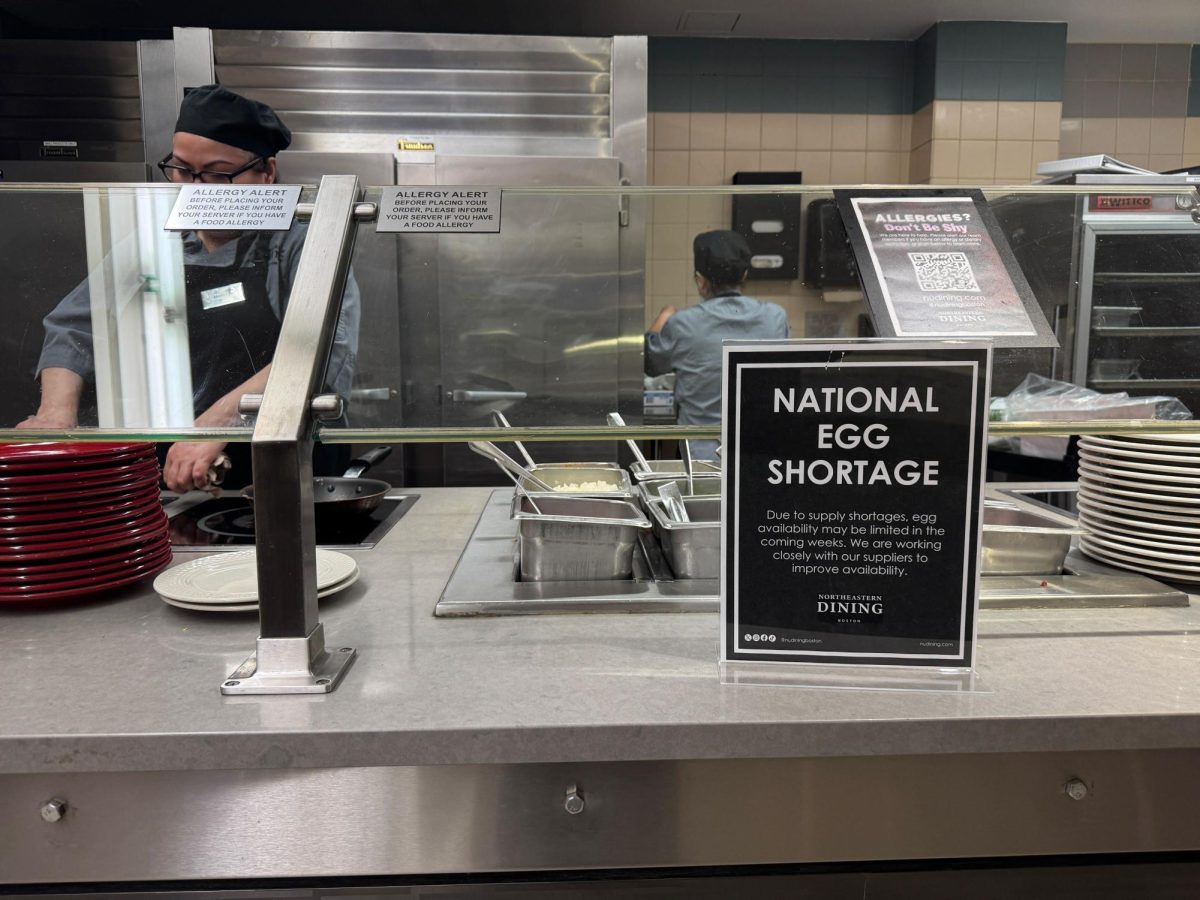This is the third in a five-part series examining students’ experiences with financial aid.
Eugene Abovsky hopes to pay for the rest of his college expenses by starting an online business. Since both his parents were laid off within a six month span, Abovsky has been paying for school with his own savings, and needs his business to make a profit to see him through the next two years.
Abovsky, a middler computer science major, is just one example of Northeastern students who have had drastic changes in their financial situations and have seen little to no difference in their financial aid. For Abovsky, it means commuting from Waltham on the T, because he can neither afford a car nor an apartment closer to campus.
The commute won’t be as much of a hassle this semester, as Abovsky is on co-op and working out of his home. Instead of searching the co-op databases for a job, he started his own dot-com business with a partner.
Although Abovsky said he knows starting a business isn’t the most reliable way to make money, he wouldn’t want it any other way. “I’m a risk-taker by nature,” he said.
Abovsky is no stranger to the working world. He graduated from Minuteman Vocational and Technical High School in Waltham, which has a high school equivalent of the co-op program. Through this program, Abovsky worked at e-Dialog, a digital marketing company. He said he started off doing basic work such as processing Internet orders.
“I realized I could probably automate about 80 percent of what I did,” Abovsky said. “The guy I was working for saw, ‘Hey, this kid has a brain,’ and I got a raise.”
Within a short time, Abovsky was no longer doing routine work, but was programming Web sites. After he graduated from high school, he worked full time for a year before applying to college. In that time, he said he managed to save about $20,000 to put toward his education.
Abovsky chose to pursue that education at Northeastern, which is the only school he applied to. He said the co-op program drew him here, especially coming from his experiential high school background. He began school in the fall of 2001, but about a month into his first year he had to take another year off for medical reasons. Shortly thereafter his mother was laid off, and his father was laid off about six months later.
When Abovsky returned to Northeastern the following year, he said he did not receive any financial aid, because he filed for aid before his parents lost their jobs, and his own savings were included in his FAFSA information. He said he was able to pay for that year with savings and some help from his former employer. The following year, Abovsky said he was surprised when his aid went up very little, considering his parents’ unemployment. That year, his package stood at $3,500 subsidized loan.
“I would think I’d have gotten some financial aid, because that’s like $125,000 of income a year that’s just gone,” Abovsky said.
With that income gone, Abovksy has been forced to fend largely for himself. Although his mother, a computer programmer, has since found another job, he said she makes considerably less than she used to. His father is still unemployed, which means Abov-sky’s parents have been unable to make any financial contribution toward his education. He said he feels sure they would have been able to help him if they hadn’t lost their old jobs, and said he thinks he would have a car by now, and would possibly live closer to campus, where housing is more expensive.
While Abovsky has had to make some minor adjustments, he has been able to stay enrolled at Northeastern. Others are not so lucky. Jaime Plaza, a junior psychology major, withdrew from the university this semester after his parents stopped paying for college due to what he described as a “falling out.”
Previously, Plaza was receiving subsidized Stafford loans, Perkins loans and grants that covered about $10,000 a year. The rest, about $20,000, was being covered by loans his parents took out. Now, his parents aren’t going to pay those loans, leaving Plaza unable to stay enrolled at the university. He said his parents’ actions came as a surprise.
“I wasn’t really expecting to have to pay for the rest of my undergraduate career by myself,” Plaza said.
The falling out with his parents occurred last semester when Plaza was studying abroad in Spain. When he returned, he said he tried to get help from the university, but had trouble getting answers.
“I’ve been getting bounced around a lot between people, so I haven’t been getting any help from the school,” Plaza said. “The best answer I was getting was that I needed to take out a Signature loan.”
Seamus Harreys, dean of student financial services, said the university tries to help students whose circumstances have changed, but individual situations determine how much the university can do for them.
“We see what aid we have available for a student in that circumstance. Maybe it qualifies them for federal grants, state grants or institutional grants. We intend to be very up-front with our students and provide them with all the aid available, so as we get later in the year, there becomes less aid available,” Harreys said.
Harreys said the university doesn’t track the number of students who annually apply for a change in aid, but when he last checked, in the middle of last year, about 7 percent of all aid applicants had applied for a change in their aid. He said some of the most common reasons students file for a change are the loss of a parent’s job, a decrease in income or high medical expenses. He said although the university will consider these factors, they don’t consider things like credit card debt as a valid reason for a change in aid.
The best option for students who need a change in aid is to meet with their financial aid counselor, Harreys said. Although there are loans and scholarships students can apply for on their own, Harreys said they can get a more complete sense of their options by talking to their counselor.
For Plaza, those options weren’t enough. He doesn’t have the credit he needs to get those loans, which is why he is taking the semester off. He said he plans to work, build up his credit and hopes to return to Northeastern in the fall. Because he would normally be on co-op this semester, he said he does not think his temporary withdrawal should affect his academic career. These changes also did not affect his housing, because he had already planned to move off campus this semester. He is currently living on Mission Hill, and is looking for an apartment to rent with a friend.
Plaza is now waiting tables at Croma, a restaurant on Newbury Street, and said he plans to begin investigating private scholarships and other options to finance his education. Although he will be renewing his FAFSA soon, he said he doesn’t expect his aid to increase, since his parents’ incomes will still be taken into account. He said his plan is simply to make some money, build some credit and take out loans.
While Abovsky is in a similar situation in the long term, he is financially set for this year, paying his tuition with the money he made during his last co-op.
“My long-term plan is keeping my fingers crossed,” Abovsky said. “If I’m still poor when I’m 30, I’ll rob a bank.”










